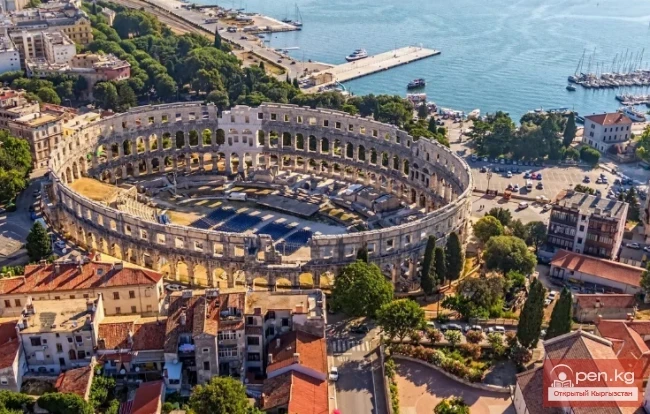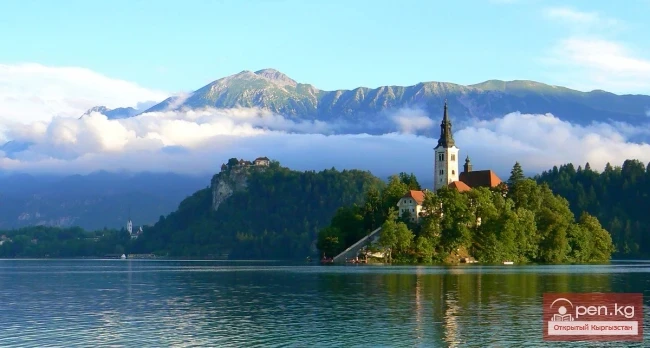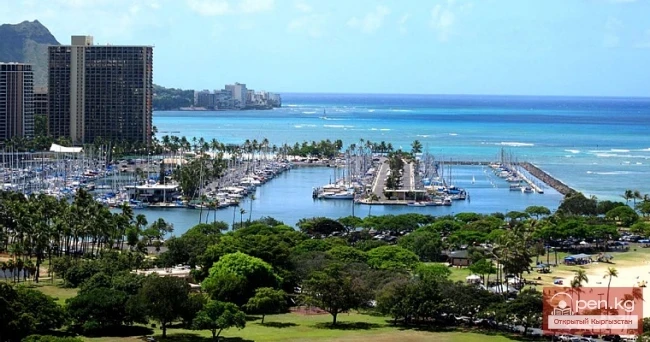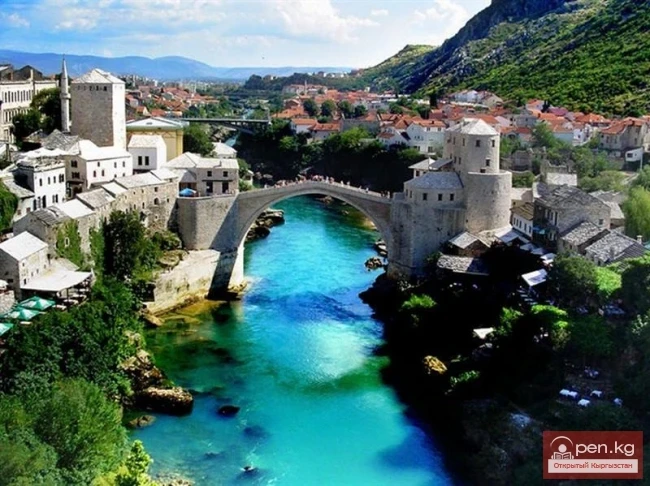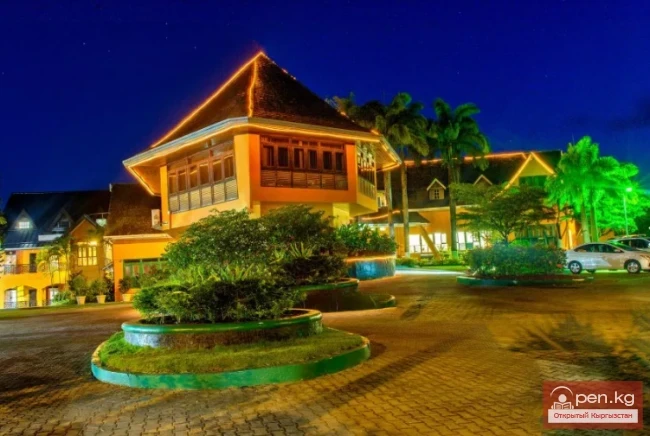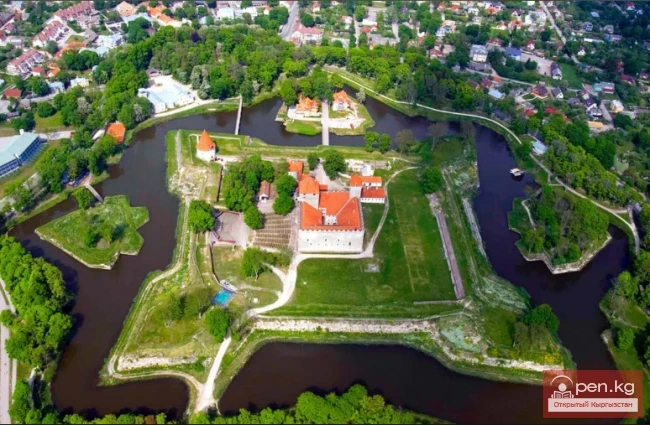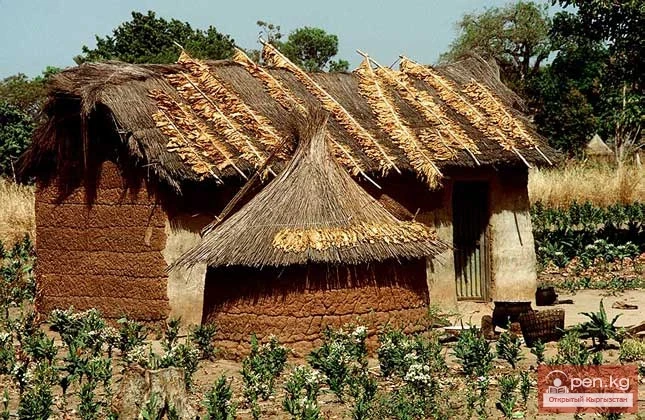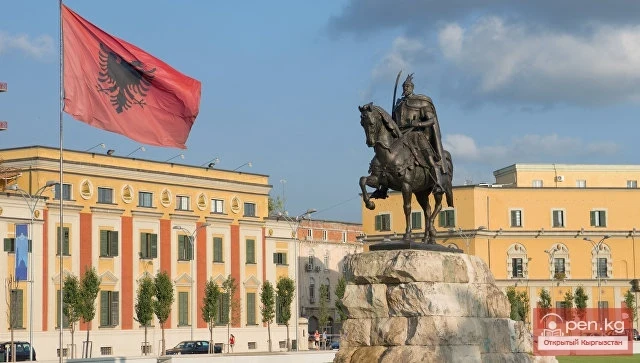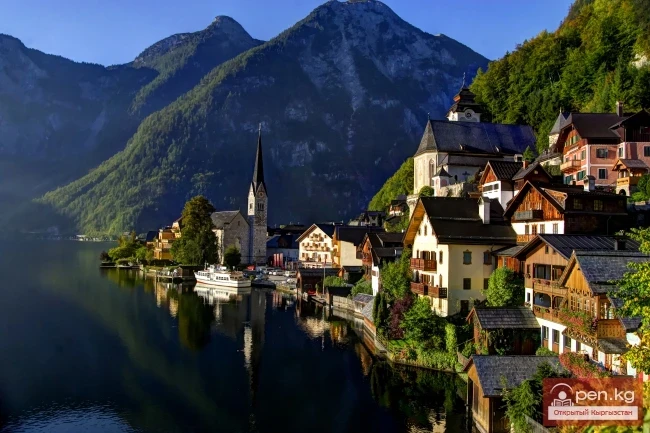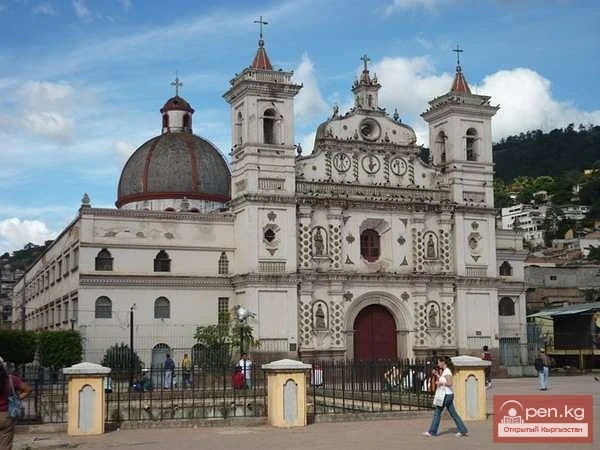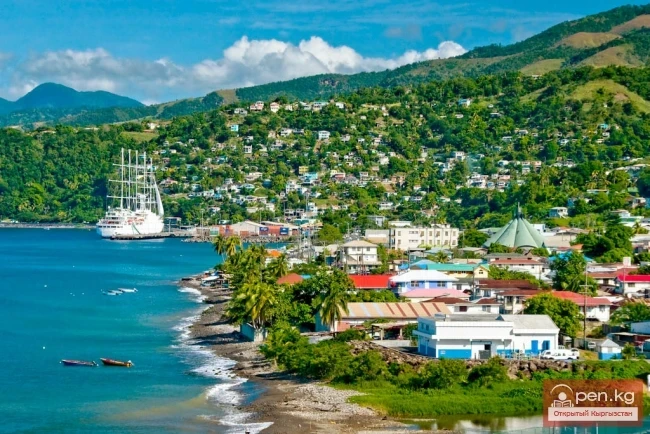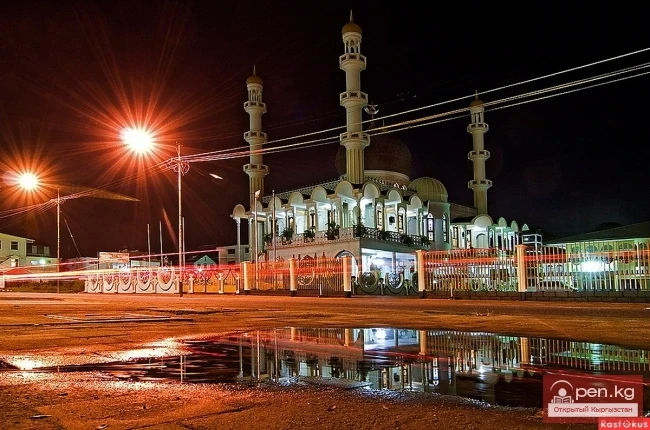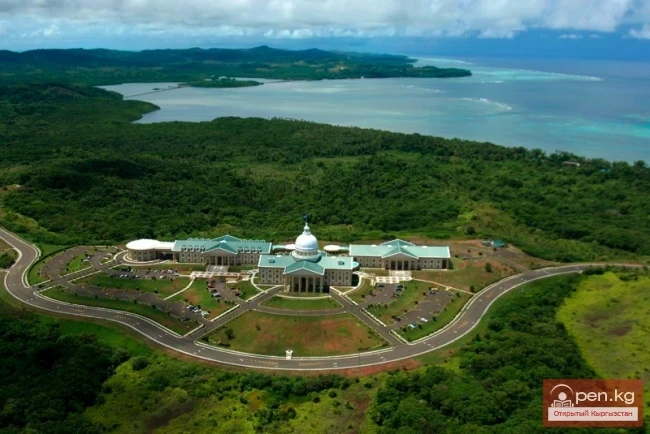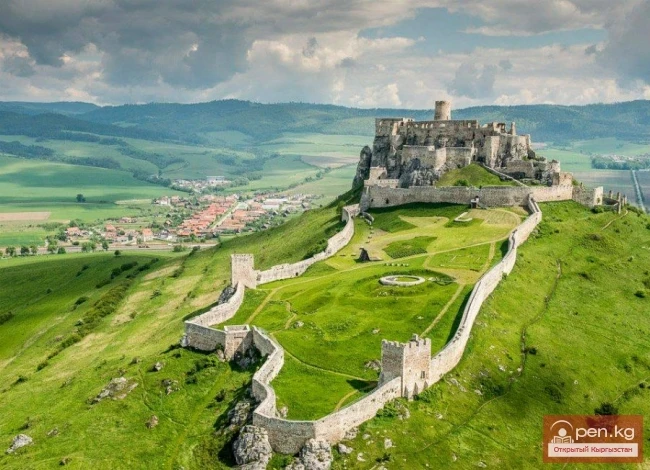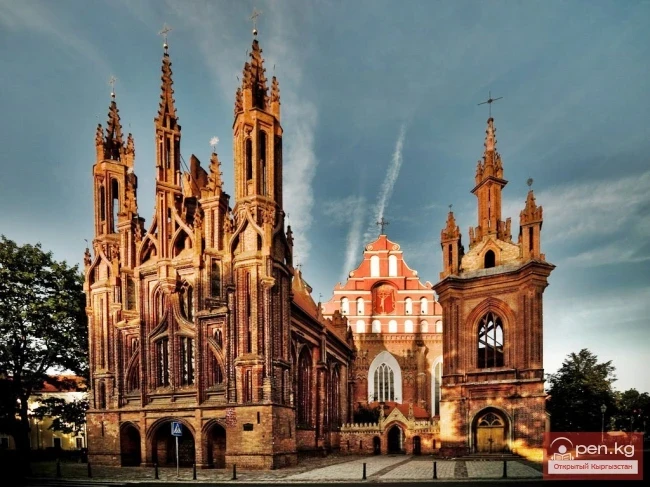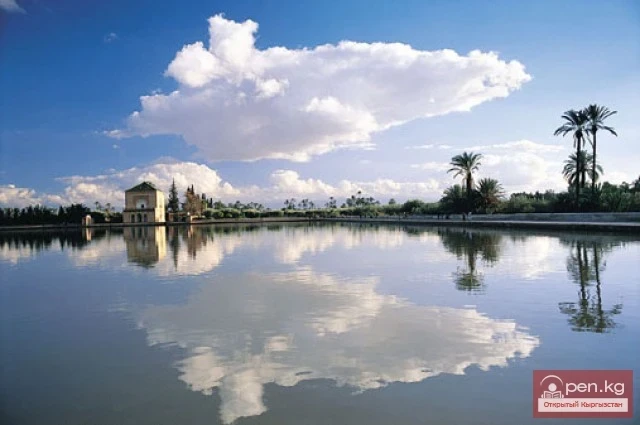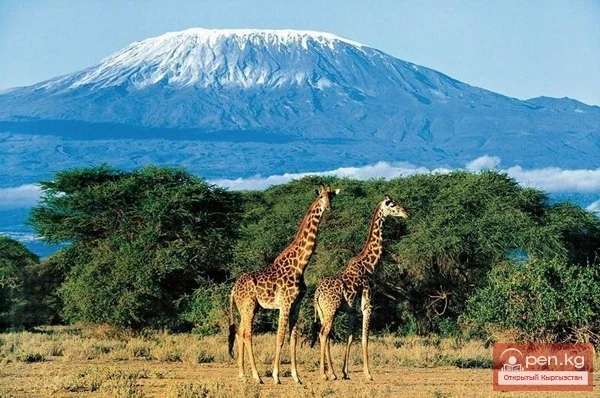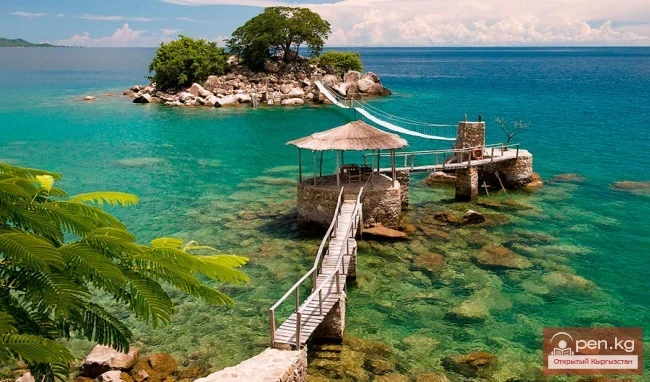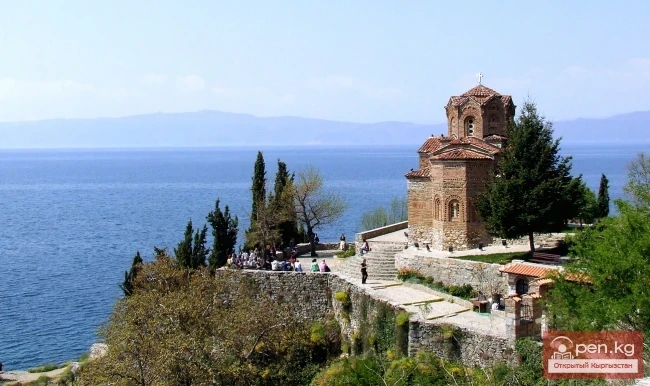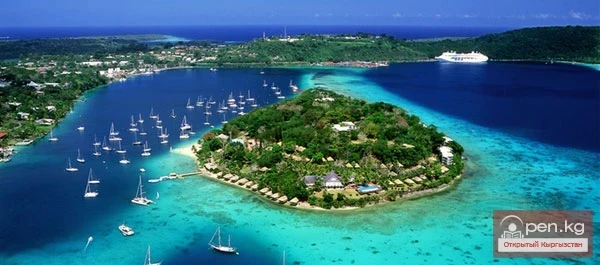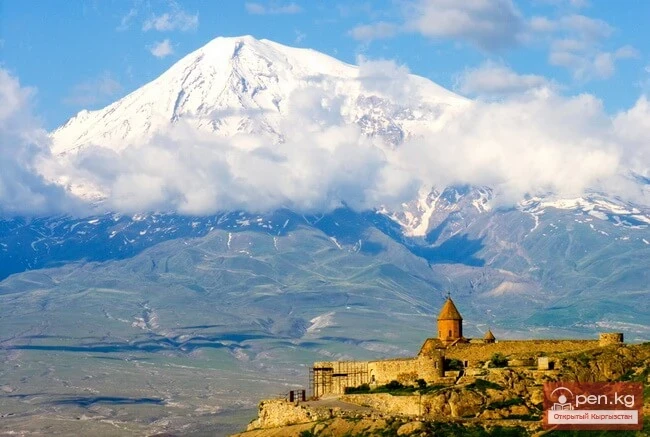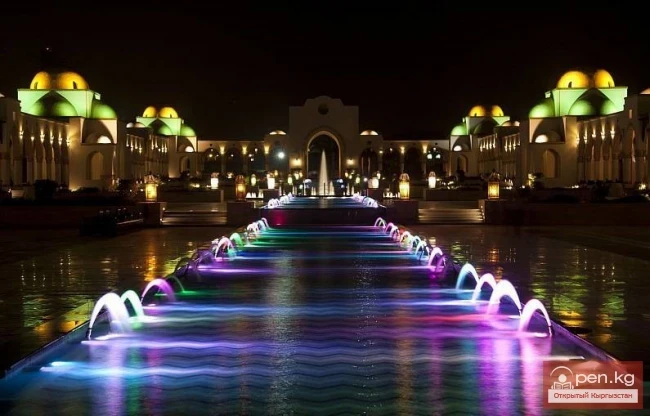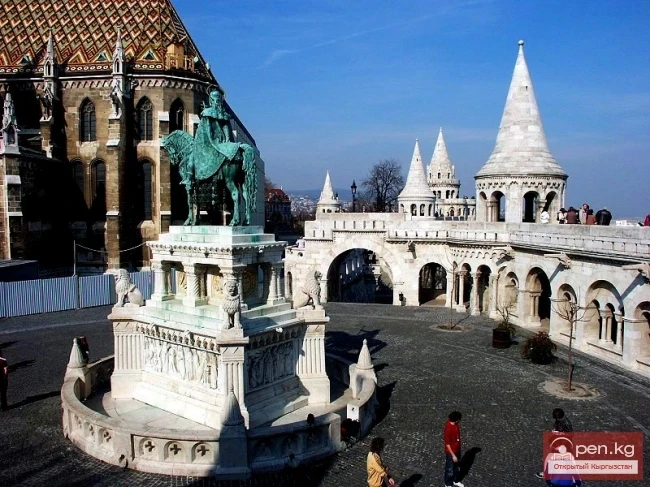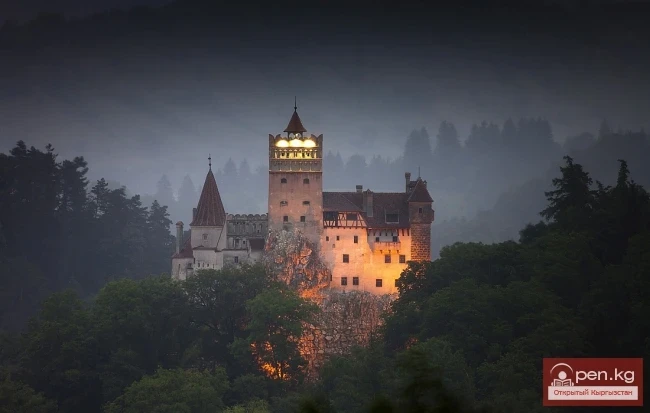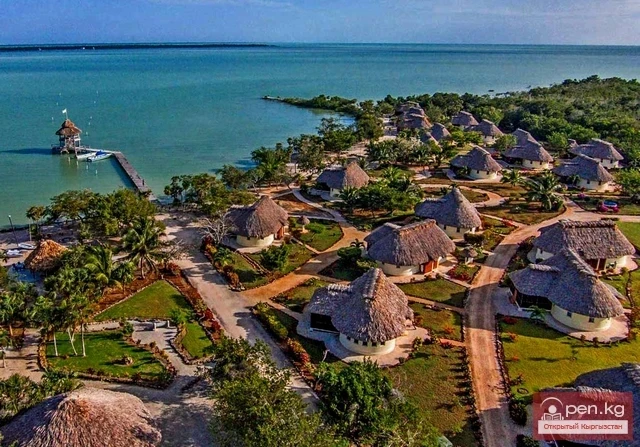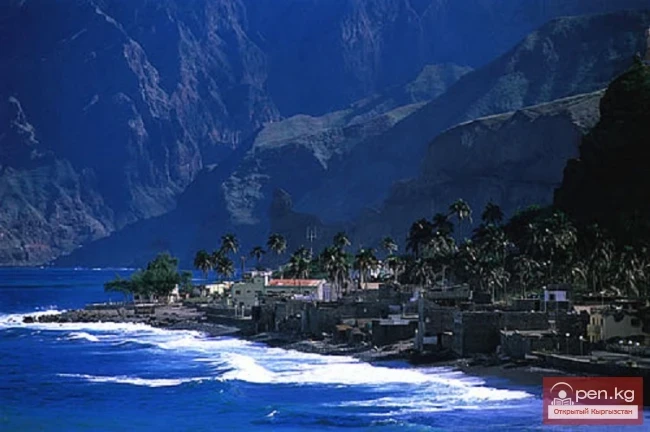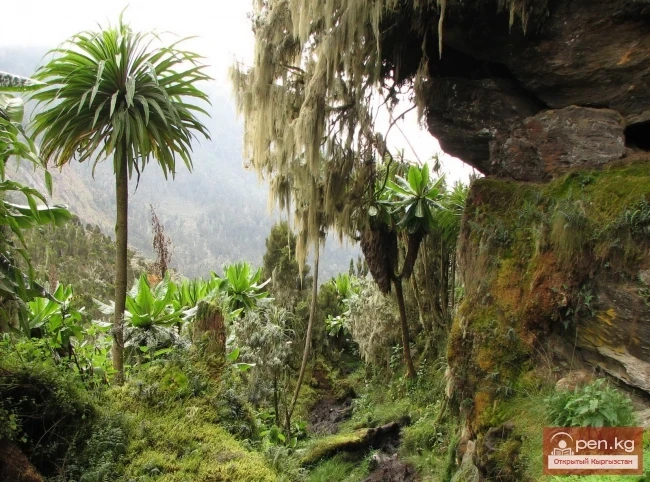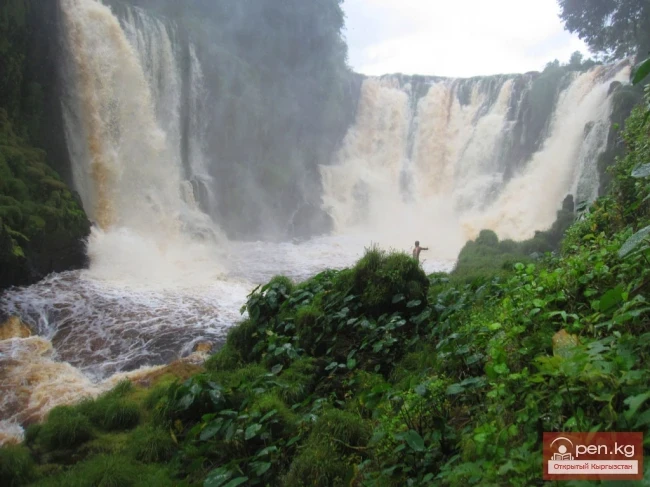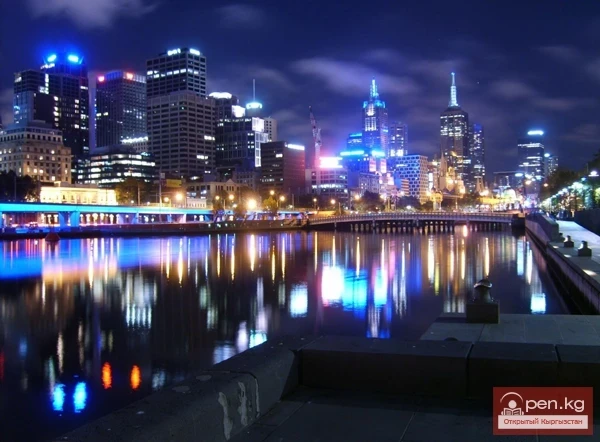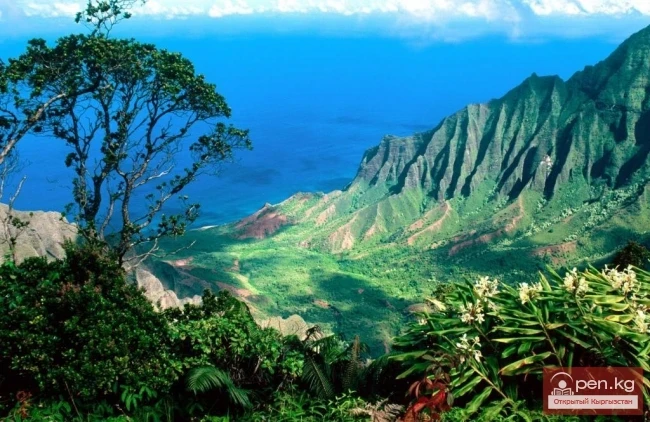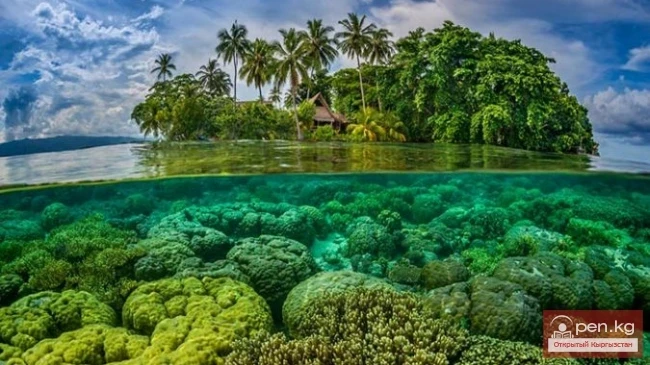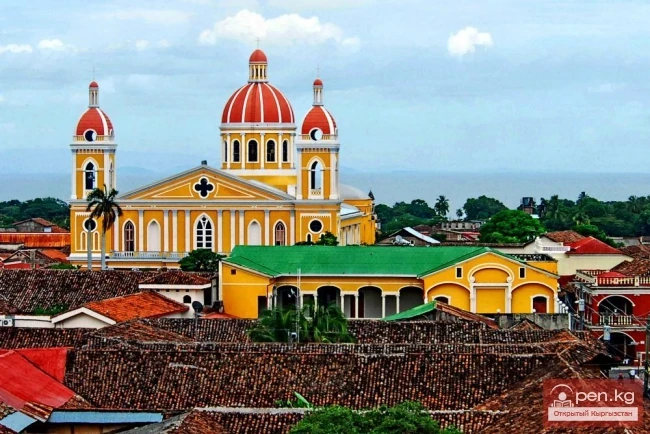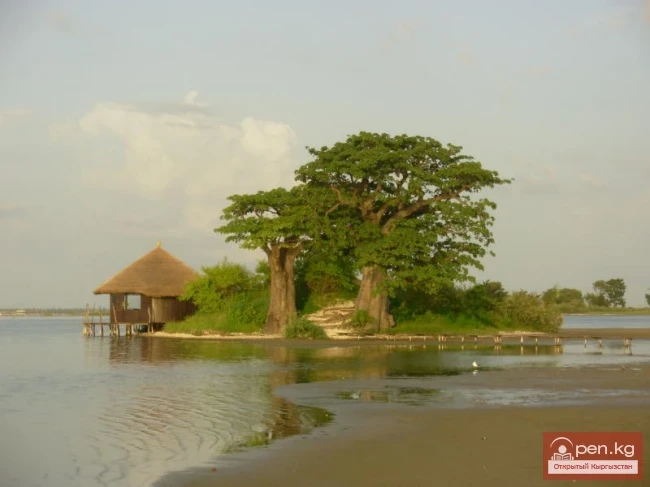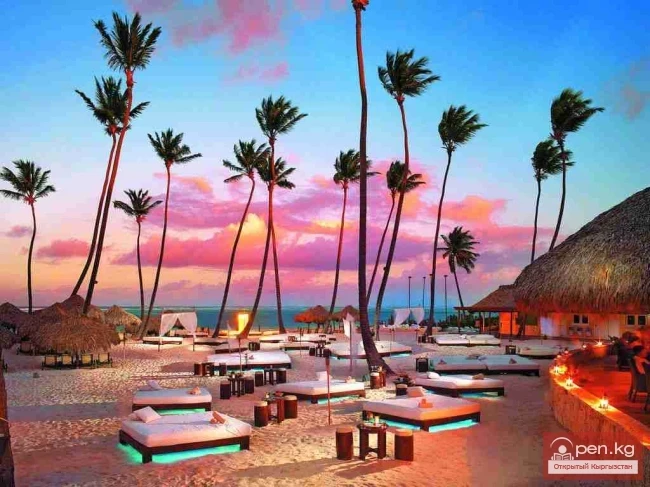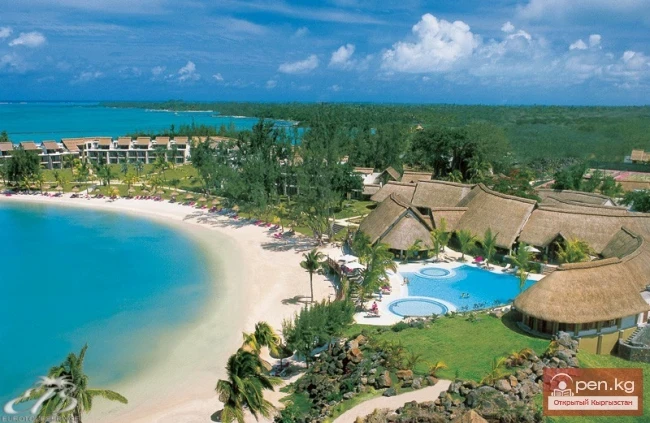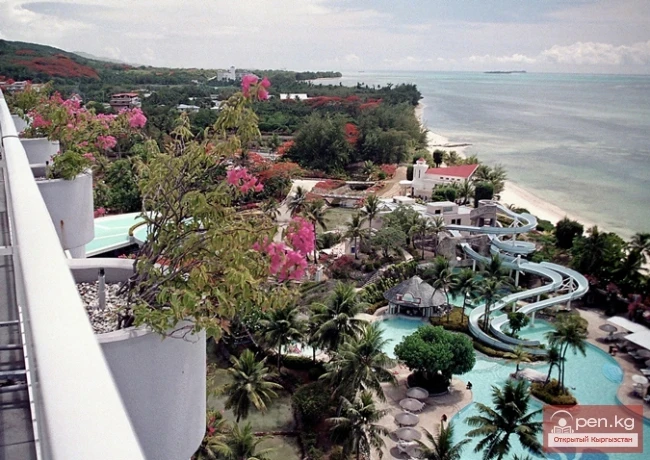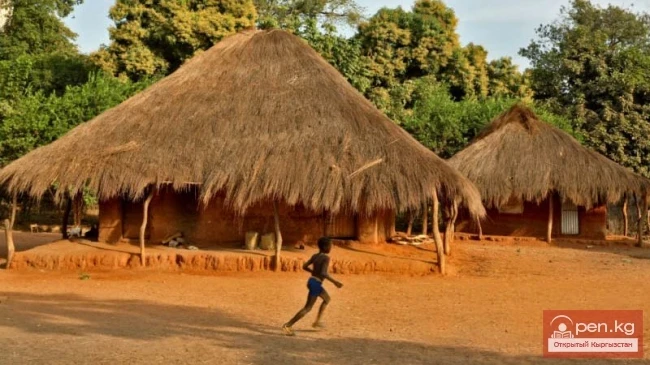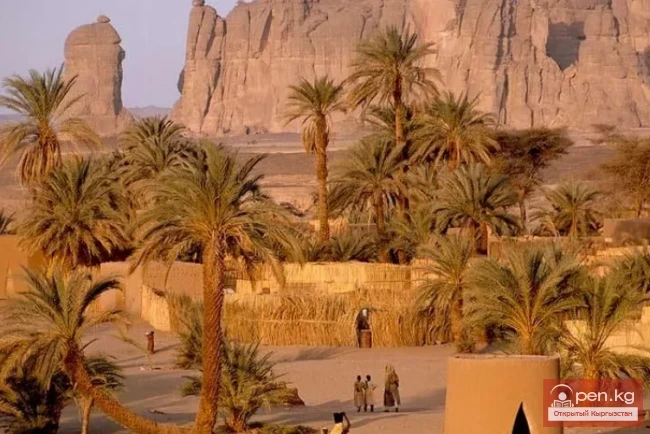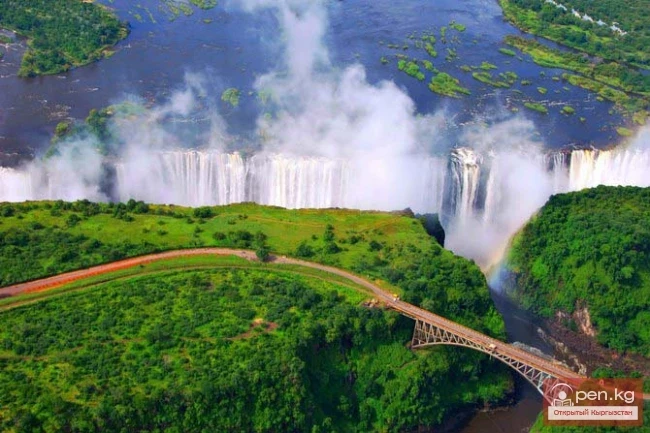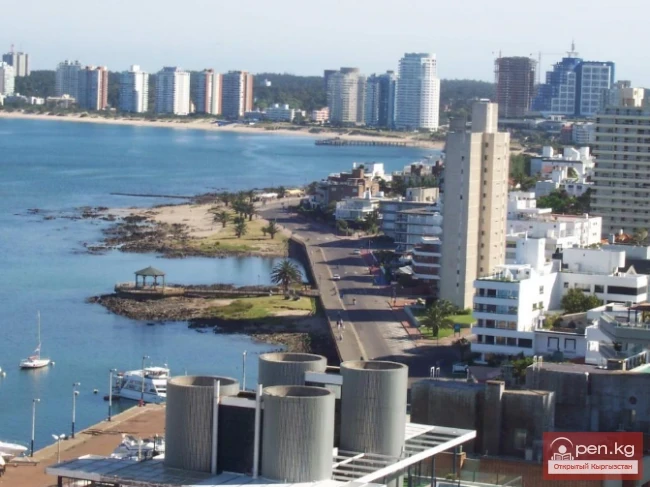CROATIA. Republic of Croatia
A country in southeastern Europe, on the eastern shore of the Adriatic Sea. Area — 56.6 thousand km². Capital — Zagreb (800 thousand), major cities: Split, Rijeka, Osijek, Pula. The main administrative-territorial unit is the county. Population — over 4.4 million (according to the 2001 census); of which 90% are Croats, 4.5% are Serbs, 0.4% are Italians, and 0.3% are Slovenes, Hungarians, Czechs, and Albanians each. The official language is Croatian. Religion: predominantly Roman Catholic faith is practiced - 87.8% Catholics, 4.42% Orthodox. The currency is the kuna.
Diplomatic relations with the Russian Federation were established in May 1992.
National holiday - June 25 - Day of Statehood (1991).
Croatia is a parliamentary republic, which declared its independence on June 25, 1991. The head of state is the president. On December 16, 2005, Stjepan Mesić was elected to this position. The highest legislative body is the Croatian Parliament (Sabor); it is elected for a term of 4 years, consisting of one chamber (152 deputies, elected on November 23, 2003).
The executive power is exercised by the government, whose composition is approved by the parliament. Following the parliamentary elections in November 2003, the Croatian Democratic Union (HDZ) won, and its leader Ivo Sanader headed the government.
More than 100 parties are registered in Croatia. The largest is the Croatian Democratic Union (HDZ, founded in 1990), which won 66 seats in the parliamentary elections in November 2003. The Social Democratic Party of Croatia was formed in 1990 based on the Union of Communists of Croatia, holding 34 seats (leader - I. Račan), the Croatian People's Party, 10 seats (leader - V. Pušić), the Croatian Peasant Party, 9 seats (leader - 3. Tomčić), the Croatian Party of Rights, 9 seats (leader - A. Đapić), the Istrian Democratic Assembly, 4 seats (leader - M. Jakovčić), and Libra, 3 seats (leader - I. Radoš).
Trade union associations: Confederation of Independent Trade Unions of Croatia, Association of Autonomous Trade Unions of Croatia, Croatian Trade Union Association.
The territory of modern Croatia was settled by Slavs in the 6th-7th centuries. In 1102, Croatia came under the rule of Hungarian kings, retaining self-governance. By the end of the 16th century, most of it was captured by the Ottoman Empire. By the end of the 18th century, Croatia recognized political dependence on Hungary and later became part of Austria-Hungary. After World War I and the dissolution of Austria-Hungary, Croatia was part of the Kingdom of Serbs, Croats, and Slovenes from 1918 (from 1929 - the Kingdom of Yugoslavia). After the fascist occupation of Yugoslavia in April 1941, the so-called Independent State of Croatia was declared. After the end of the National Liberation War in Yugoslavia (1941-45), from 1945 to 1991, it was part of the Federal People's Republic of Yugoslavia (then the Socialist Federal Republic of Yugoslavia - SFRY) as one of its 6 republics.
In May 1990, in the first multiparty elections in the post-war history of Croatia, the HDZ party achieved a convincing victory, taking a course towards the independence of the republic. On December 23, 1990, the Sabor (parliament) of Croatia approved a new constitution, which established the status of the republic as an independent and sovereign state within the SFRY. In May 1991, a referendum on full independence of Croatia was held (94% of participants voted positively). On June 25, 1991, the Declaration of Independence and Sovereignty of the country was adopted. On October 8, 1991, legislative acts on the state independence of Croatia and its exit from the SFRY came into force.
The steps taken by the Croatian authorities faced opposition from the Serbian population of the republic, leading to escalating tensions and armed clashes in Serbian-populated areas of Croatia. On December 19, 1991, in the territories they controlled, Serbs proclaimed the independent Republic of Serbian Krajina (RSK), which was not recognized by either the Croatian leadership or the international community. To end the interethnic conflict, the UN Security Council established a peacekeeping operation in Croatia - UNPROFOR (United Nations Protection Forces).
During military operations in May and August 1995, Croats established control over most of the territory of the so-called RSK. A significant portion of the Serbian population left Croatia for Serbia and Bosnia. On November 12, 1995, representatives of the official Zagreb and authorities in the areas of Croatia that remained under Serbian control signed an agreement on their gradual reintegration into Croatia. The UN Security Council acted as a guarantor of the agreement, establishing a UN Temporary Administration with a military contingent of multinational forces under the UN flag (UNTAES). Following the local elections held here on April 13-14, 1997, new authorities were formed, and the Council of Serbian Communities was created. Full control of Zagreb over the territories was restored in January 1998.
Croatia is a member of the UN, OSCE, joined the Council of Europe in 1996, and seeks to integrate into European political and economic institutions, primarily the EU and NATO.
Croatia, as part of the SFRY, was among the economically developed republics, but the pre-war economic crisis and the damage from the war reduced its level of economic development.
The leading industries include shipbuilding, machine engineering, chemical, food, textile, woodworking, electrical engineering and electronics, and pharmaceuticals. In recent years, there has been a revival of the economy. In 2004, both industrial production and GDP growth were 3.7%.
In agriculture, crop production (wheat, corn, sugar beets, flax, sunflowers), horticulture (apples, plums), and viticulture prevail.
An important sector of Croatia's economy is tourism. In 2004, the country was visited by 7.9 million foreign tourists.
Major newspapers: "Večernji list" (published in Zagreb), "Vjesnik" (Zagreb), "Novi list" (Rijeka), "Jutarnji list" (Zagreb).
The Croatian Information Agency - HINA is located in Zagreb. There are services of Croatian Radio and Croatian Television.
